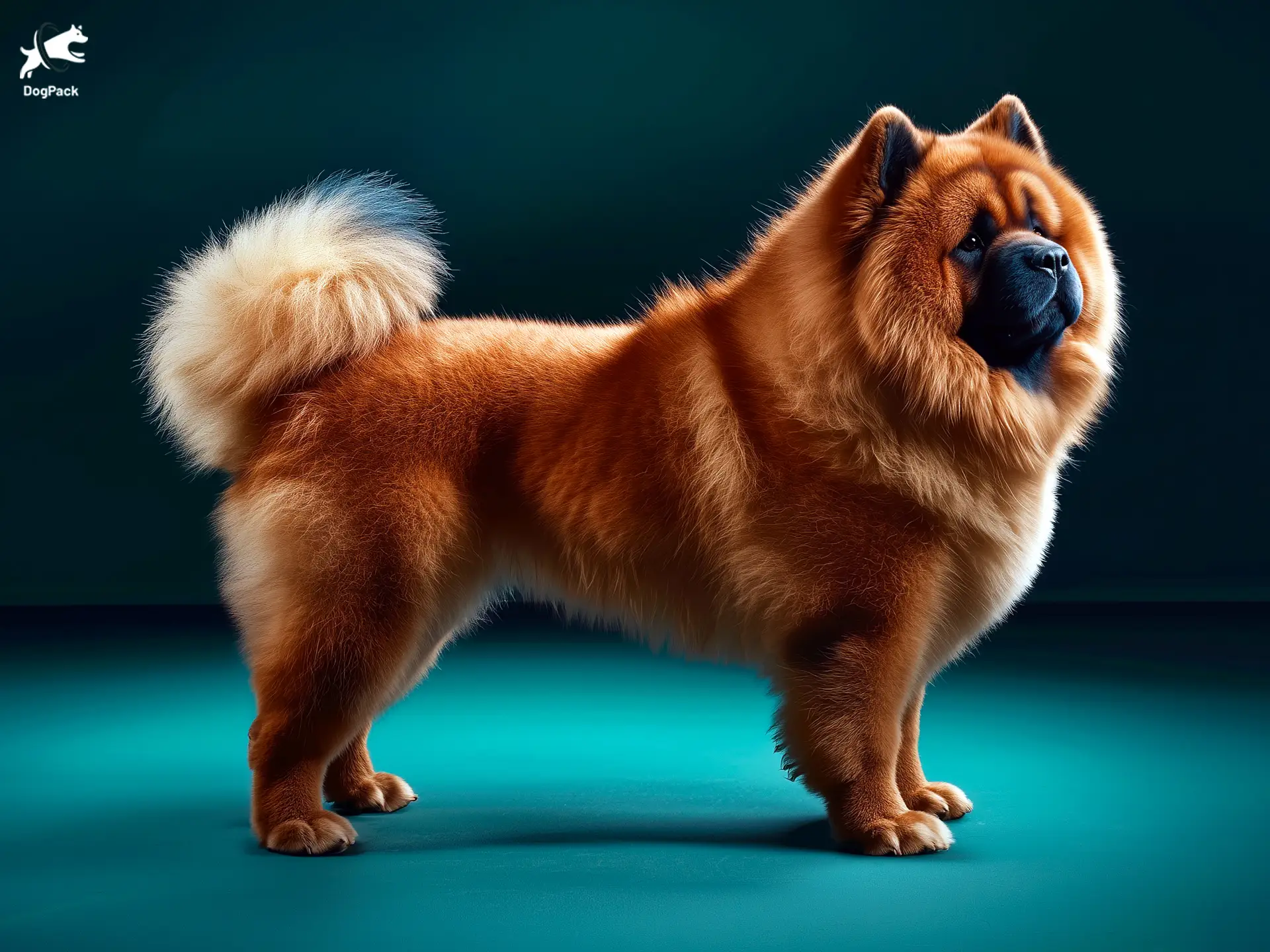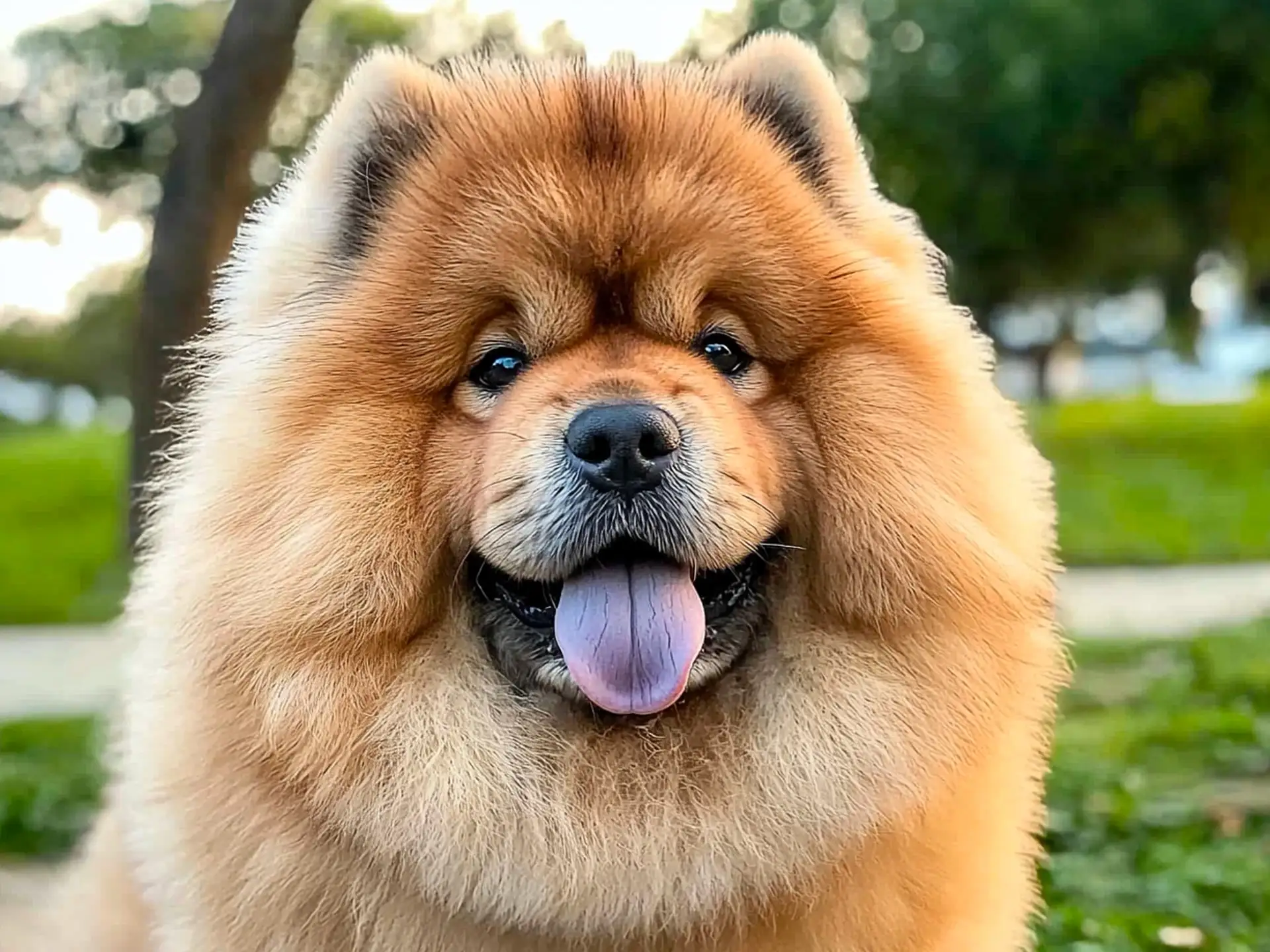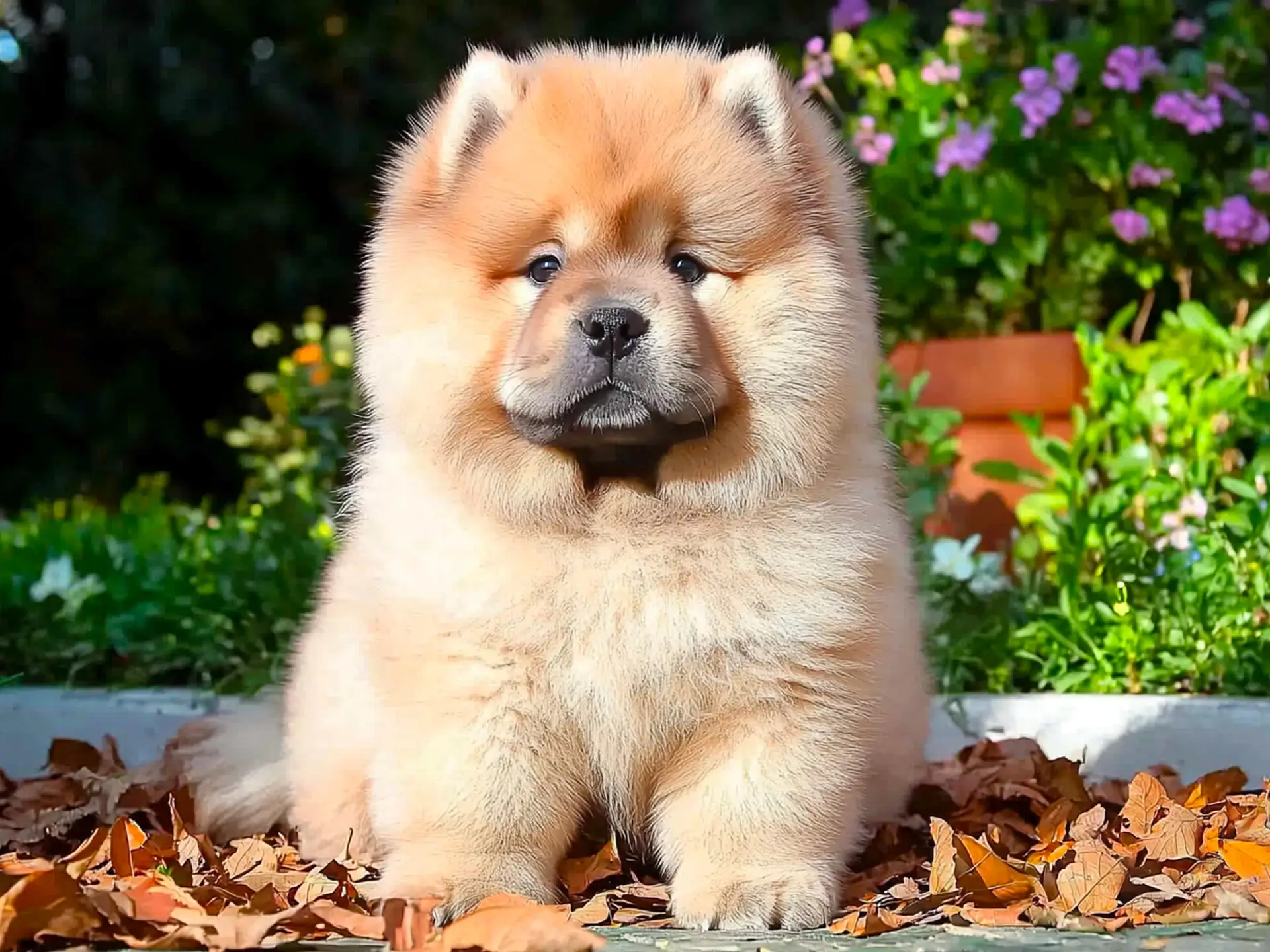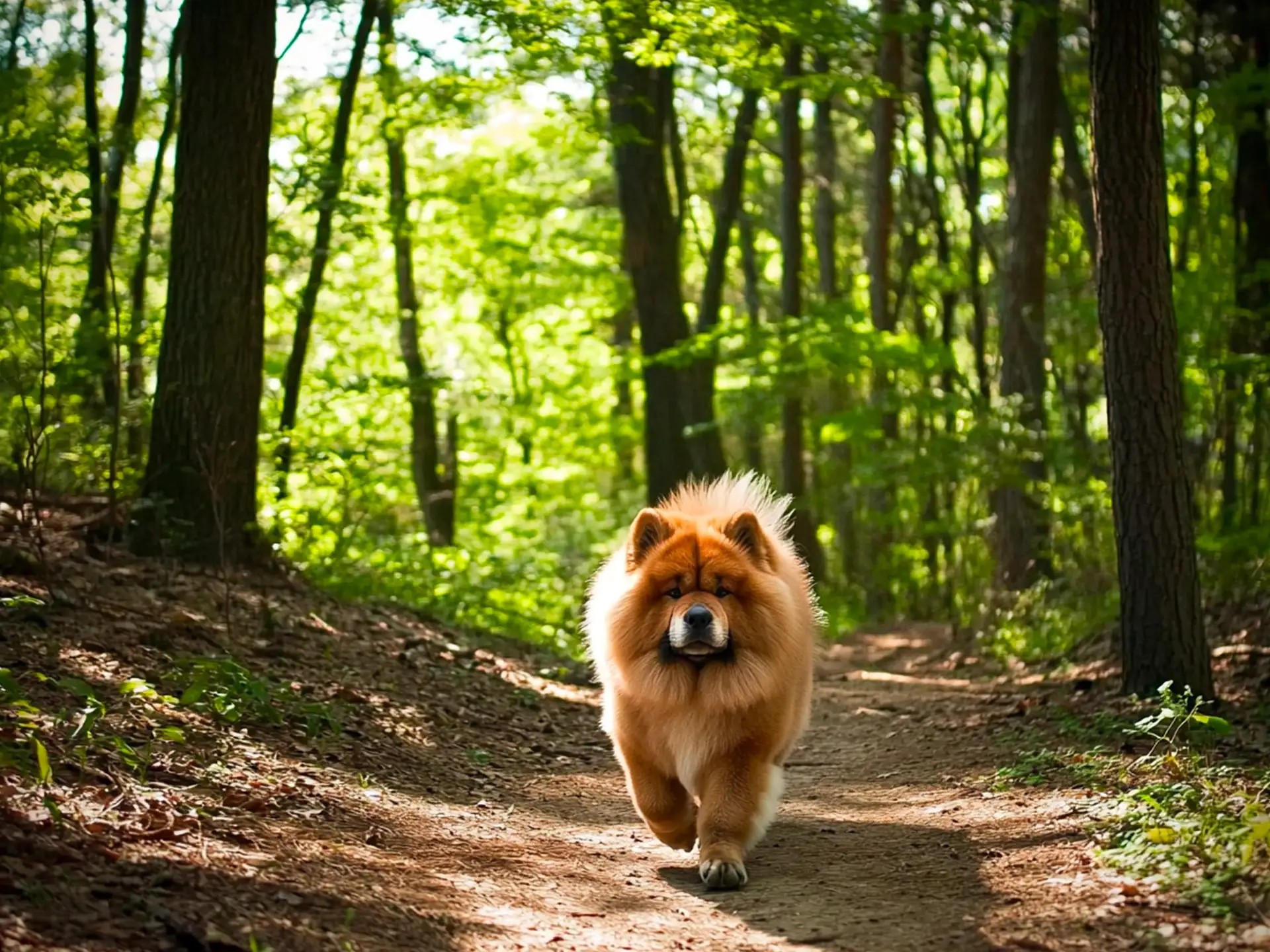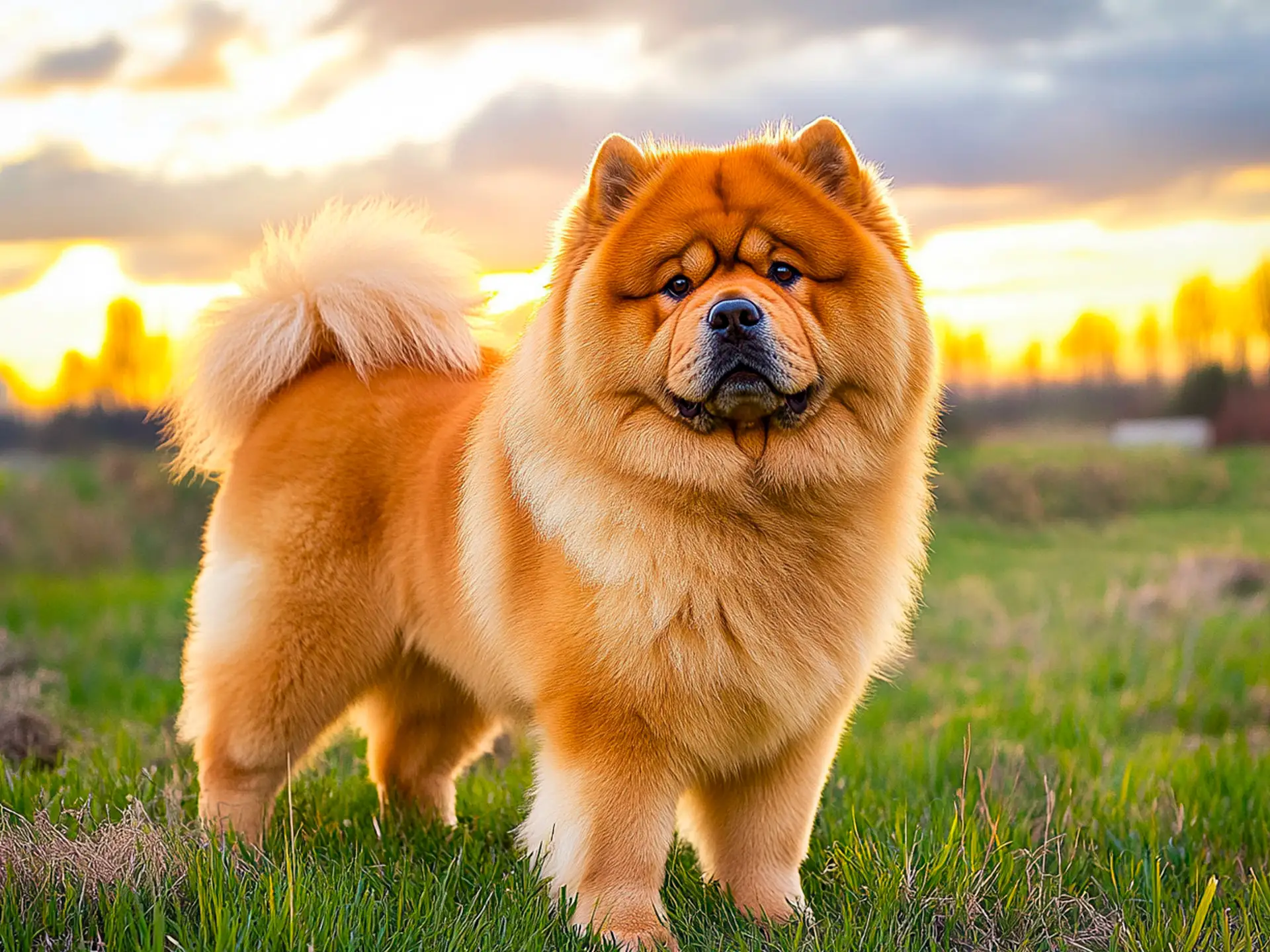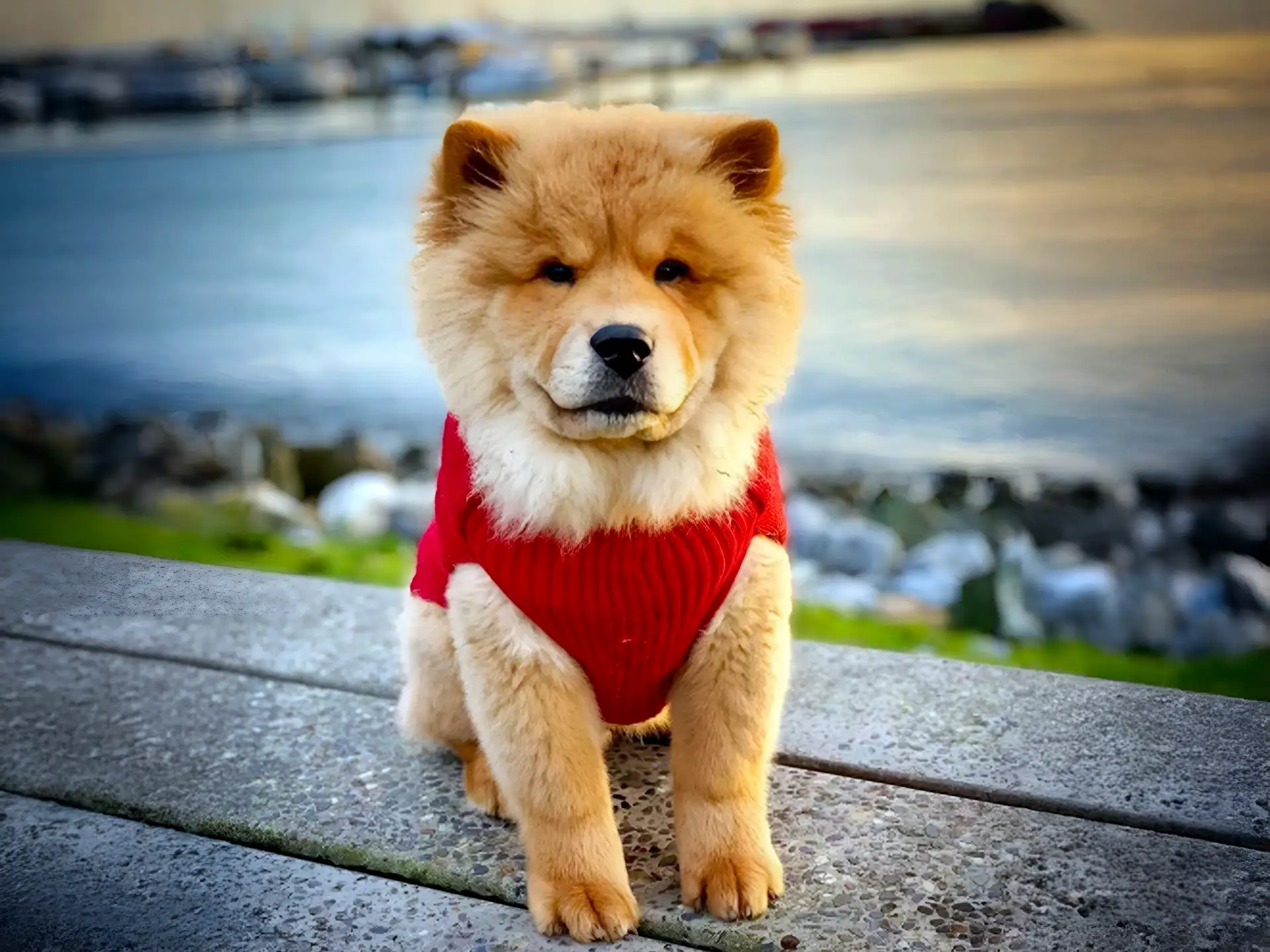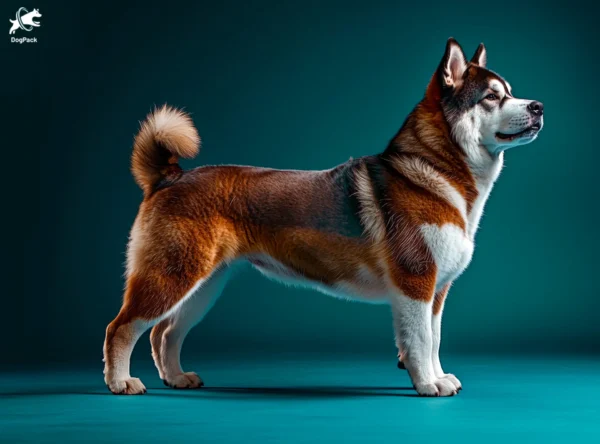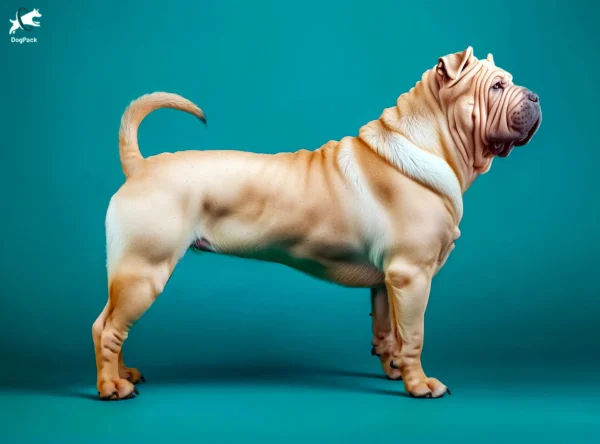Chow Chow Dog Breed Info & Overview
With their lion-like mane and scowling expression, the Chow Chow commands attention. Originating from ancient China, these dignified dogs are known for their independent spirit and loyalty. While they may seem aloof, Chow Chows form strong bonds with their families, making them a unique and fascinating companion.
Characteristics
Pictures
Breed History
The Chow Chow has an illustrious history stretching back over 2,000 years, originating in ancient China, where it was cherished by emperors and nobility. Known as one of the world’s oldest breeds, it played important roles in hunting, herding, and guarding, showcasing its versatility. Artifacts from the Han Dynasty even depict dogs resembling Chows, underscoring their long-standing role in Chinese culture.
Interestingly, the name “Chow Chow” comes from an old pidgin-English term used by British merchants in the 18th century to refer to miscellaneous items brought from the East. When British traders encountered these distinctive, lion-like dogs, the name seemed to fit, and it stuck. It wasn’t long before Western fascination with the breed grew, leading to its introduction in England and, eventually, the United States.
By the late 1800s, the Chow Chow had captured the hearts of European aristocracy, even winning the affection of Queen Victoria. Its exotic looks and dignified bearing made it a fashionable choice among the elite. Today, while less common than other breeds, the Chow Chow remains an enduring symbol of elegance and ancient heritage.
Temperament, Personality
Chow Chows have a reputation for being aloof, almost like a cat in a dog’s body. They’re fiercely loyal to their families but may seem indifferent to strangers. Socializing them early is essential to help them grow into confident, well-adjusted adults who can navigate new situations comfortably.
Though not overly cuddly, Chows express love in subtle ways. They’re the type to sit nearby, watching over you rather than smothering you with affection. This reserved, dignified demeanor makes them excellent watchdogs—they’re always on high alert and quick to respond if they sense anything unusual.
Their independent nature can sometimes come off as stubbornness, so they’re best suited for experienced dog owners. Patience and a gentle, consistent approach work wonders with Chows. For those who understand their unique personality, a Chow Chow offers a deeply rewarding bond.
Physical Characteristics
The Chow Chow is a dog with unmistakable presence. Its thick double coat comes in a range of colors, from red and black to blue, cinnamon, and cream. The dense fur around its neck, often described as a “mane,” lends it a lion-like appearance, enhancing its regal charm and making it stand out in any crowd.
With a solid, square build, broad skull, and small, erect ears, Chows have an almost majestic quality. One of the breed’s most unique features is its blue-black tongue—a trait shared by only a few other breeds. This distinct characteristic has long fascinated dog lovers and adds to the breed’s mysterious allure.
Their eyes are deep-set and slightly scowling, giving them an air of dignified seriousness. Despite this intense expression, Chows can be surprisingly playful and sweet with their families, showing a softer side that endears them to those who know them best.
Health Issues
Chow Chows are generally hardy, but like all breeds, they have specific health concerns to watch for. Hip and elbow dysplasia are common due to their build, so maintaining a healthy weight and scheduling regular vet visits is crucial. Eye issues, particularly entropion (a condition where the eyelids roll inward), can also arise, so routine eye checks are recommended.
Thyroid problems and skin conditions may occasionally affect Chows, often due to their dense coats. Regular grooming and monitoring help prevent skin infections or irritations. Their unique physical structure also makes them prone to overheating, so hot weather precautions, like staying cool and limiting exercise, are necessary.
Given these needs, it’s wise to work with a reputable breeder who screens for common health conditions. With attentive care, your Chow Chow can enjoy a long, healthy life, rewarding you with years of companionship.
Grooming Needs
Chow Chows boast a luxurious coat that’s as beautiful as it is high-maintenance. Weekly brushing is a must to keep their dense double coat in top shape, and during shedding seasons—usually twice a year—daily brushing may be needed to manage the extra fur.
Bathing once a month or as needed keeps their coat fresh, but be sure to dry them thoroughly to prevent skin issues. Their thick coat is prone to matting, so using a slicker brush can help reach through the dense layers. Additionally, check for parasites like fleas or ticks regularly, especially in warmer months.
Routine nail trimming, ear cleaning, and dental care are essential to keep them in prime condition. With a little extra grooming care, your Chow Chow’s coat will remain a source of pride and a testament to their noble origins.
Exercise Requirements
Despite their imposing appearance, Chow Chows aren’t overly energetic. They’re content with moderate daily exercise, like a 30- to 60-minute walk, paired with some light playtime. However, they do benefit from regular, low-impact activity to keep them fit and mentally stimulated.
Chows don’t usually enjoy rigorous or high-intensity workouts. Instead, they prefer calm, controlled activities. Mental stimulation is equally important; engaging puzzle toys and training sessions are great for keeping their minds sharp and prevent boredom.
Because of their sensitivity to heat, it’s best to schedule exercise during cooler parts of the day. Short, frequent activity sessions suit their temperament and physical needs, keeping them happy and healthy without overexertion.
Training Tips
Training a Chow Chow can be an adventure. These dogs are intelligent but famously independent, often deciding for themselves whether something is worth their time. Positive reinforcement, like treats and praise, is crucial; they respond well to gentle encouragement rather than harsh corrections.
Socialization should start early, helping Chows grow comfortable with new people, places, and other animals. Puppy classes can provide structure and expose them to varied experiences. Due to their independent streak, patience and consistency are essential for successful training.
Keep training sessions brief and interesting to hold their attention. Chows can be stubborn, but with the right approach, they’re capable of learning a lot. Building a trusting relationship will make training enjoyable for both you and your Chow Chow.
Nutrition, Diet
A Chow Chow’s diet should be balanced to support their size and moderate energy level. High-quality dog food with sufficient protein maintains muscle mass, and controlled fat levels help prevent obesity. Most Chows thrive on about 2 to 2.5 cups of dry food per day, split into two meals.
Due to their predisposition to joint issues, look for foods rich in glucosamine and chondroitin to support joint health. Omega-3 fatty acids also benefit their skin and coat, keeping them looking and feeling their best. Adjust feeding amounts based on your dog’s age, weight, and activity level.
Consulting with a veterinarian ensures that your Chow Chow’s diet is tailored to meet their specific needs, keeping them active and healthy as they age.
Adoption, Breeders
If you’re considering bringing a Chow Chow into your home, finding a responsible source is essential. Reputable breeders focus on health and temperament, providing health clearances for common genetic issues. Visiting the breeder’s facility allows you to meet the parents and see the puppy’s environment.
Adoption is a wonderful option, too. Organizations like the Chow Chow Club, Inc. offer rescue and adoption services for this breed. Many Chows find themselves in need of new homes due to a mismatch in lifestyle, so adopting can be a rewarding experience.
Avoid puppy mills and online sellers without verified credentials. Choosing a responsible breeder or adoption source gives you peace of mind and sets you and your future Chow up for success.
Family Pet?
Chow Chows can be wonderful family pets, especially in homes with older children who understand how to interact gently. They’re loyal and protective but may not tolerate rough play, making them better suited to families with a calm, respectful dynamic.
They can be territorial, and while early socialization helps, they may be best as the only dog in the household or paired with a pet of the opposite sex. Their natural protective instincts make them excellent watchdogs, though they need guidance to differentiate between friend and foe.
With the right family, a Chow Chow can be a loving, dignified companion who thrives in a serene environment that respects their independence.
Right For You?
If you’re an experienced dog owner looking for a unique, dignified companion, the Chow Chow could be a fantastic fit. They do well in homes where their grooming and exercise needs are met, and their loyalty and independence are respected.
They’re best suited for households with fenced yards, as they enjoy their own space and need an environment where they can safely roam. Apartments may not be ideal due to their size and exercise requirements, though it’s possible if daily walks are provided.
Consider your lifestyle and ability to meet their specific needs before committing. If you’re up for it, a Chow Chow will reward you with a lifetime of devotion.
Conclusion
The Chow Chow is more than just a beautiful face—they bring centuries of loyalty, dignity, and wisdom to any home. With their distinctive appearance and unique personality, they’re an unforgettable breed. For those willing to dedicate time to their grooming, training, and companionship, the Chow Chow makes a devoted, rewarding addition to the family. If you’re ready for a truly unique canine friend, this ancient breed could be the perfect match.
FAQs
-
What cultural significance does the Chow Chow have in China?
The Chow Chow holds a unique place in Chinese history, often depicted in ancient art and associated with nobility. Known as “Songshi Quan” in China, meaning “puffy-lion dog,” they were prized for their guarding abilities and distinct appearance.
-
Are Chow Chows suited to hot climates?
Chow Chows are sensitive to heat due to their dense coat. In warmer climates, it’s best to keep them in air-conditioned spaces and avoid outdoor activities during peak heat, as they can be prone to overheating.
-
Do Chow Chows need a specific type of diet?
Chow Chows benefit from a balanced diet with high-quality protein and moderate fat. Some may have food sensitivities, so a diet with fewer fillers and carefully selected ingredients helps maintain their coat and health.
-
How do Chow Chows express affection?
Chow Chows can be reserved but are deeply loyal to their family. They may not seek constant attention, but they’ll often follow their loved ones around and show their attachment through calm companionship rather than overt affection.
-
Can Chow Chows live comfortably in apartments?
While Chow Chows can adapt to apartment living due to their calm demeanor, they need daily exercise and mental stimulation. Access to a secure outdoor space for short, supervised playtimes is ideal to meet their exercise needs.
Breed Ratings
They are intelligent but can be stubborn, which may make training a bit challenging.
Not the most playful breed, they prefer calm and quiet environments.
Moderate energy levels require regular but not strenuous exercise.
High shedding due to their thick double coat; expect significant fur around the home.
Generally low prey drive but may chase small animals if not trained.
Requires frequent grooming to maintain their coat and prevent matting.
Can be stubborn; requires patience and consistent training methods.
Can handle being alone for reasonable periods but still need companionship.
Not overly vocal; barks when necessary.
Low drooling compared to other breeds.
May be reserved or territorial around other dogs; early socialization helps.
Prone to certain health issues; regular vet care is important.

